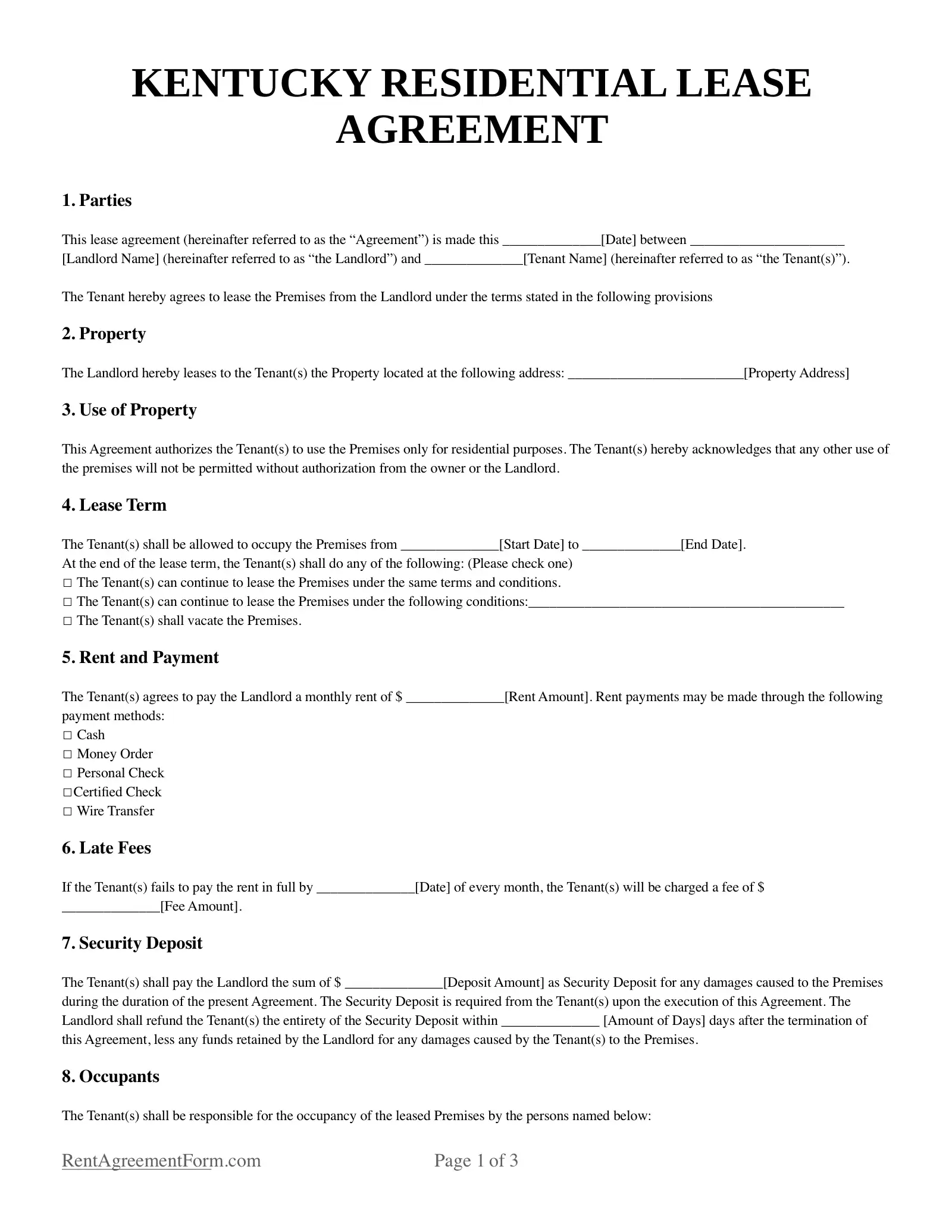Kentucky Residential Lease Agreement Form
Kentucky is a nature lover’s dream state with its thriving farmlands, rolling hills, and scenic rivers. It’s also known for having the longest-running horse derby. So, if you’re thinking of renting in the Bluegrass State, you ought to know more about the residential lease agreement form.
A Kentucky residential lease agreement form is a legal document that a landlord and tenant sign when a rental unit or property in Kentucky is to be leased. The document contains the conditions of the real estate rental and the responsibilities of both parties.
It is the responsibility of the tenant to pay the monthly rent on time and to take care of the apartment or rental unit. On the other hand, the landlord's responsibilities are to ensure that the property is safe for occupancy and that any damage is repaired as soon as possible, especially if it poses a danger to the occupants.
Before signing a lease, the first step for tenancy is filing a Kentucky rental application form. It’s a document that a potential tenant submits to the landlord, along with a non-refundable application fee. After the rental application’s approval, the parties can talk about the conditions of the lease.

Required Disclosures
- Lead-Based Paint Disclosure - Lead-based paint has been banned in the country since 1958. So, if the property was constructed before then, the landlord is required to inform the tenant of the fact. Further, the landlord must provide the tenant with educational materials about the dangers of lead-based paint (Lead-Based Paint Disclosure Rule § 1018).
- Authorized Access Disclosure - The landlord should inform the tenant about all the people allowed inside the property, such as managers, agents, or realtors. The disclosure should be done before the start of the tenancy.
- Move-In Inspection - Before the landlord accepts the security deposit, the tenant should be given a rundown of existing damage on the property through a move-in inspection list. The tenant has the right to inspect the property to verify the items on the list (Kentucky Revised Statutes § 383.580 (2)).
Rent Grace Period
Kentucky has a rent grace period of seven days. This means that if the tenant fails to pay rent on time, the landlord will send a written notice of nonpayment, informing them that they have seven days to pay rent. If the tenant fails to comply after seven days, the landlord can start with the eviction process.
Security Deposits
There is no statute on the maximum security deposit that a Kentucky landlord can collect at the beginning of the tenancy. However, they are required to deposit the amount in a separate bank account or financial institution that is legally under the jurisdiction of the Commonwealth of Kentucky or any U.S. government agency. The tenant must be informed of the account details.
The landlord has 60 days to return the security deposit to the tenant, but they also have the right to deduct any repair expenses should a room or other parts of the rental unit become damaged. The security deposit may also be used for unpaid rent (Kentucky Revised Statutes § 383.580 (1)).